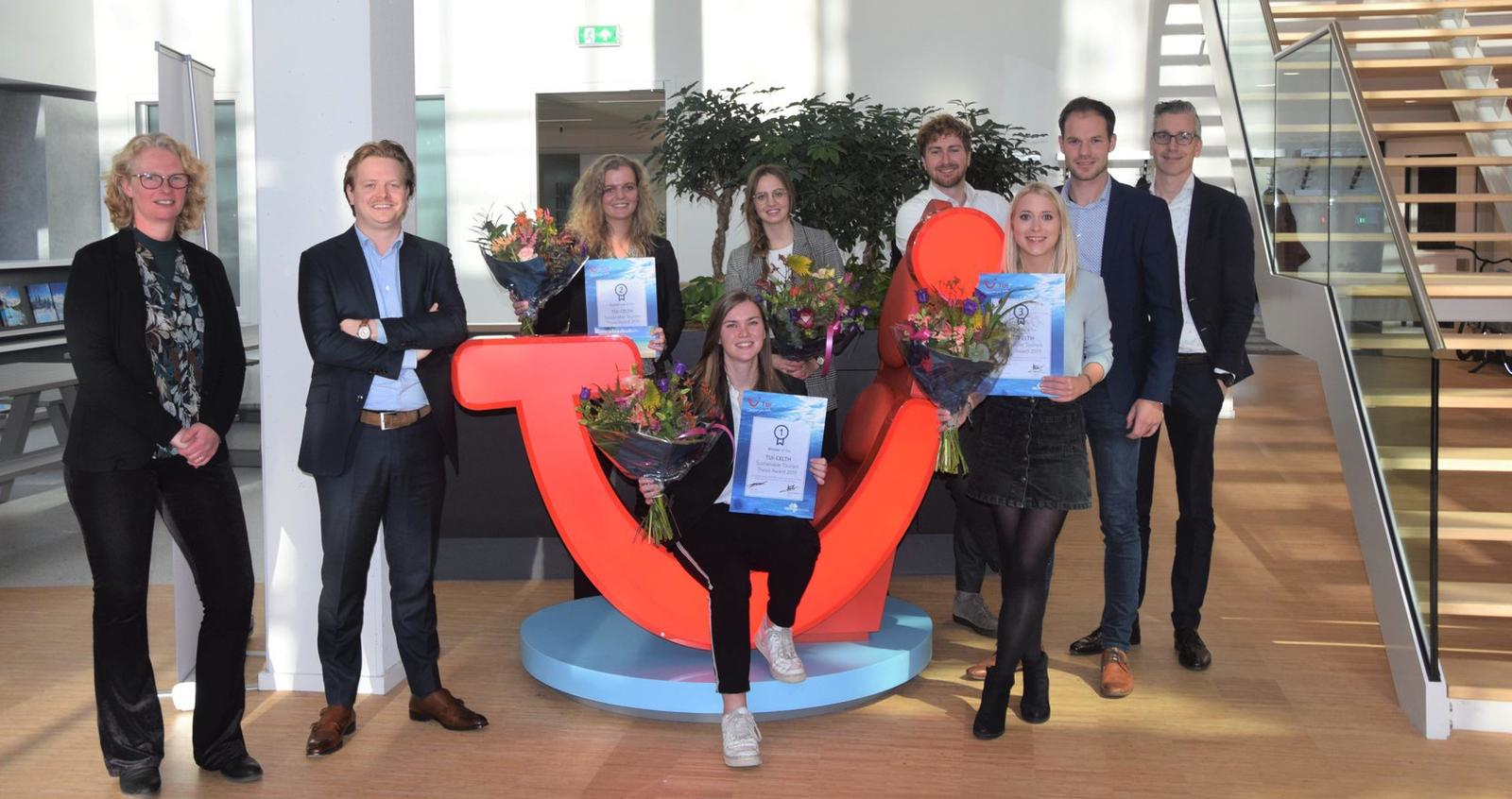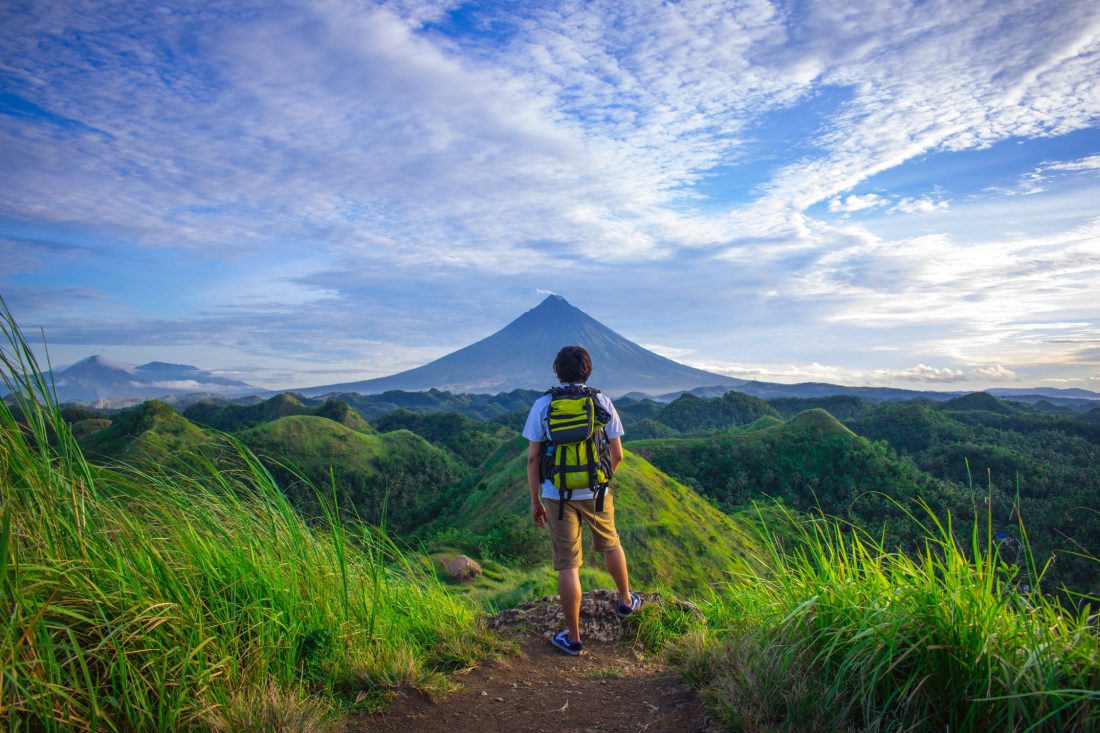Interview with Sophie van den Top – sustainability among Tour Operators and Travel Agents
The Next Tourism Generation Alliance interviewed Sophie van den Top, who graduated by writing her thesis on the possibilities to minimalizing the negative impacts caused by the different kind of excursions a tour operator can offer for FOX Travel. Her research is awarded with the TUI-CELTH Sustainable Tourism Award on Friday 8 november 2019. This award is granted each year to students with the best thesis on sustainable tourism in the Netherlands. Sophie from Saxion University developed criteria on how to improve the sustainability of excursions at tourism destinations. In this blog, she will highlight some of the most important outcomes of her research.

What are the main challenges for TO’s and TA’s when it comes to working in a sustainable way?
The main challenge of a tour operator that offers a sustainable product, is determining when an excursion is considered sustainable. There is a big market of excursions at a tourist destination. It is a challenge for the local agents to select the most sustainable excursion and for the tour operator, to give directions about the sustainable requirements of an excursion.
Many destinations do not have the knowledge about sustainability and there isn’t the needed awareness about sustainability. Because of this, there won’t always be a sustainable option or possibilities to make the excursions more sustainable.
Moreover, because there aren’t a lot of criteria regarding the sustainability of excursions, it is hard to determine whether an excursion is sustainable. Known ecolabels, such as Travelife, are already certifying local agents. Because these ecolabels mainly focus on accommodation, the local agents already know what to look for when choosing the right accommodation. Because the ecolabels focus less on the sustainability of excursions, local agents aren’t aware of the possible negative impacts and the possibilities to improve the level of sustainability.
When it is clear how sustainable the excursions are, it is a challenge to improve the level of sustainability. Excursion suppliers aren’t aware of the negative consequences and are only willing to change if they won’t lose any money. Because of this, it is hard to make the excursions offered more sustainable, as it is a competitive market and suppliers are not willing to make their excursions more expensive.
Furthermore, the excursion suppliers have different customers from different countries, with their own values and needs. The European customer wants to travel sustainably, whereas Asian customers aren’t as aware of sustainability as the European market. The Asian customers still want certain excursions, such as elephant rides and pictures with tigers. This causes a dilemma to the TA, as these excursions make a lot of money, whereas the European market, doesn’t want to be involved. The challenge TO’s face is to find the appropriate TA which complies to the needs of the European market. The challenge the TA face is to find suitable excursions for both the Asian and the European market.
What is the main role of a TA when it comes to sustainability?
TA’s are the local representatives who arrange the excursions. Agents that organize excursions themselves deliver a product to the outbound TO and therefore should be aware of the possible negative impacts. As for agents that work together with excursion suppliers, it is important that they check and monitor the level of sustainability and work together with suppliers that show consciousness. An upcoming problem for local agents is an increase in suppliers that brand and sell their excursions as sustainable, while they are not, and charge more than the comparative supplier. It is hard for an agency to figure out which supplier is the most sustainable for the best price, especially when the agents don’t exactly know when an excursion is sustainable.
When a TA chooses to offer only sustainable excursions it is important that excursion suppliers are being stimulated to improve the level of sustainability. The local agents that FOX works with, supply such a large number of customers, that the suppliers are willing to improve the level of sustainability in order to maintain the collaboration.
How could TO and TA collaborate on this?
It is in both their interest that excursions become more sustainable. First of all, because a sustainable approach will preserve the local nature, culture, traditions and will improve the local employment, labour rights and human rights. Preserving the local nature, culture and traditions will make sure that the destination will be able to keep offering tourists an authentic and worthwhile experience. Second, the demand for a sustainable tourist product is becoming bigger. A growing number of people indicate that they want to travel sustainably.
To meet the needs of the customers, the TO and TA need to work together to stimulate suppliers to improve the level of sustainability. Outbound TOs already have knowledge in improving the level of sustainability. When passing on this knowledge to the TA, they will be able to communicate this to their supplier. Next, they need to inform the suppliers about the advantages of a sustainable approach. Not only will sustainable excursions attract more tourists, but a sustainable approach will also reduce the use of water, electricity and fuel and will maintain the natural environment and local culture and traditions.
In your thesis you mention that FOX should give training in order to stimulate the local agents, what should this training look like?
I think FOX shouldn’t be the one giving the trainings as this isn’t part of the activities and operations of a touroperator. I think FOX should be arranging trainings given by certified training companies to the TAs that aren’t already certified with an ecolabel. As FOX is Travelife Certified, FOX should enrol and invite the TA to attend Travelife trainings, which Travelife organizes across the world. The TA should be encouraged to become a Travelife Partner. The agents should be made aware of all cultural, ecological and social aspects that are being used during the excursion and what the possible negative impacts might be. Next, the agents should be trained on how to use the aspects in a sustainable way.
Follow the efforts of the Next Tourism Generation via our website, Facebook, Twitter | #NTGskillsalliance or via LinkedIn




No Comments